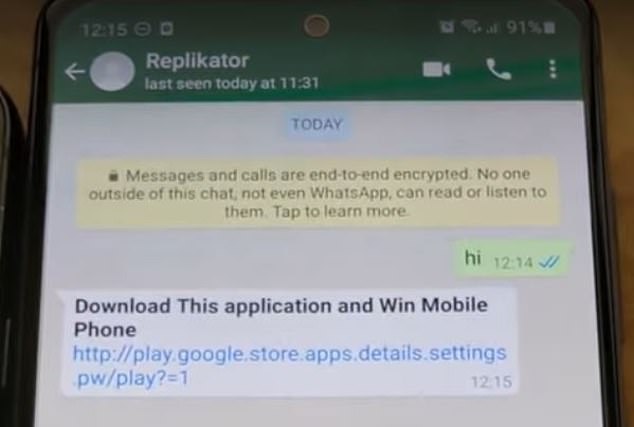One of the most widely used instant messaging apps in the world, WhatsApp has over two billion users. Given its popularity, it’s not surprising that some are attempting to use it as a means of stealing your financial and personal information. Through texts or phone conversations, scammers using the messaging app get in touch with victims while frequently posing as trustworthy organizations.
In certain cases, they’ll demand money while threatening to hurt a loved one. Because WhatsApp scams are continuously changing, some of them can be difficult to recognize. However, there are a few techniques to spot the most typical warning signs.
Types of scams
-
Family Emergency Scams
Impersonation scams, often known as family emergency scams, occur when a con artist approaches the victim while posing as a relative. The con artist may claim that their phone broke and that they are now utilizing a replacement or a friend’s phone to persuade victims. The faker then demands money in order to cover a cost. For instance, the person can claim that their wallet was stolen and that they urgently need money.
-
Government Impersonator scam
A scammer poses as a government employee or sends a text message that appears to be from a legitimate organization, such as the Internal Revenue Service or the Social Security Administration. Then, in order to avoid legal action, the person requests that you pay a fine or debt. They may even be aware of some details about you, such as your name or address. Keep in mind that government entities will never text, call, email, or even leave you a voicemail.
-
Give away scam

The target receives a text message letting them know they won a contest. The next step is to reply with personal information or click a link to receive your prize.
-
Online romance scam
Online dating services like Tinder and eHarmony are notorious for having a high rate of romance scams. However, the con artist can persuade you to switch the chat to WhatsApp once you’ve been matched with someone through these dating services.
-
Cryptocurrency scam

Trending cryptocurrency scams involve con artists posing as financial gurus and offering unrealistic investment prospects.
-
Kidnapping scams
In this kind of deception, con artists get in touch with you and say they have abducted a friend or relative. Then they threaten to use violence if you don’t pay the ransom.
-
Account takeover scam
In account takeover scams, you can get a text requesting fast attention for one of your online accounts.
How to avoid these whatsapp scams
- Any mails for money should be avoided. To evaluate the matter, get in touch with the alleged individual or organization.
- Any alleged relatives or friends calling from unfamiliar numbers should be questioned.
- Watch out for any grammar or spelling errors. Error-free texts come from reputable businesses or services.
- If the writer claims to be someone you know, think about if their writing style is consistent with how they typically communicate.
- Ask the con artist a question that only a friend or family member would know the answer to.
- Use none of the links or contact information provided in the text. Find the company’s or organization’s official contact details online.
- Keep in mind that government entities will never call or text you. Never provide information about your financial accounts or personal data, such as your Social Security number or birthdate.
- Put two-factor authentication in place. By using this security step, your Whatsapp account is protected from hackers.





































